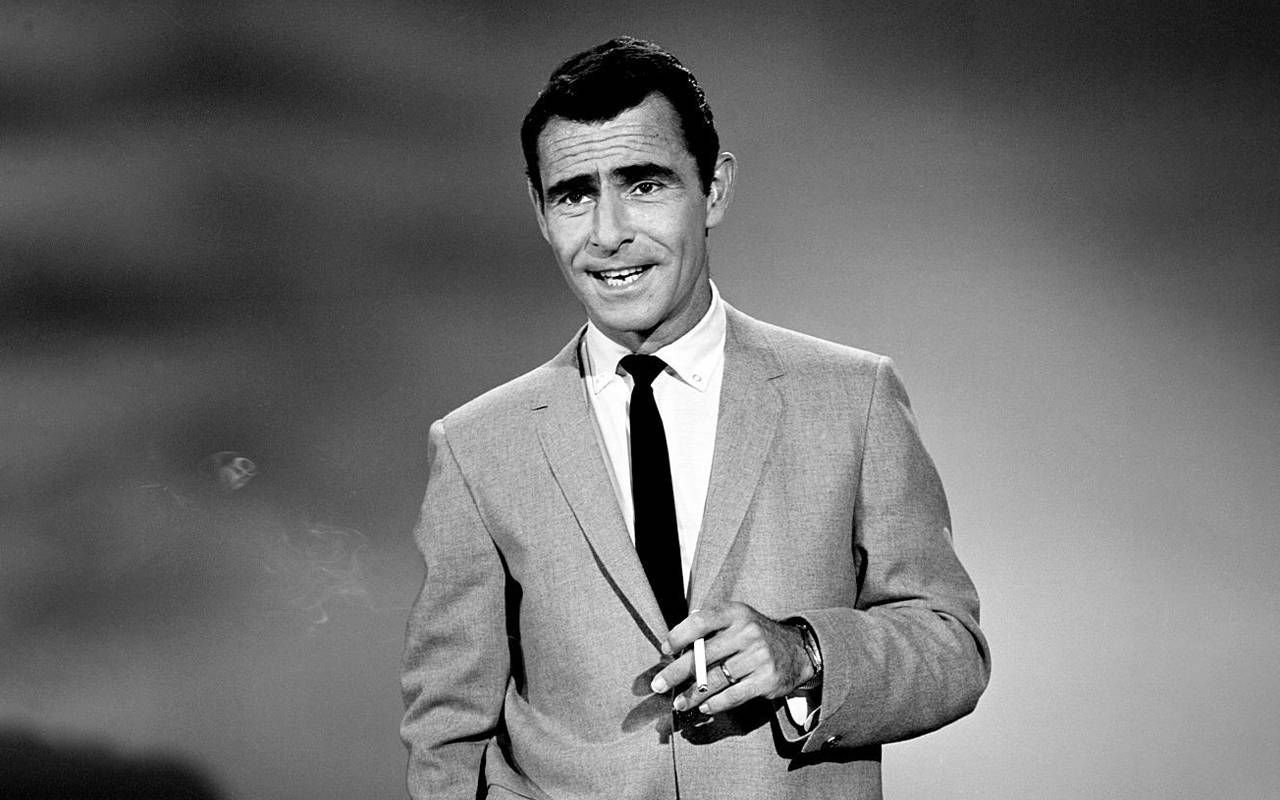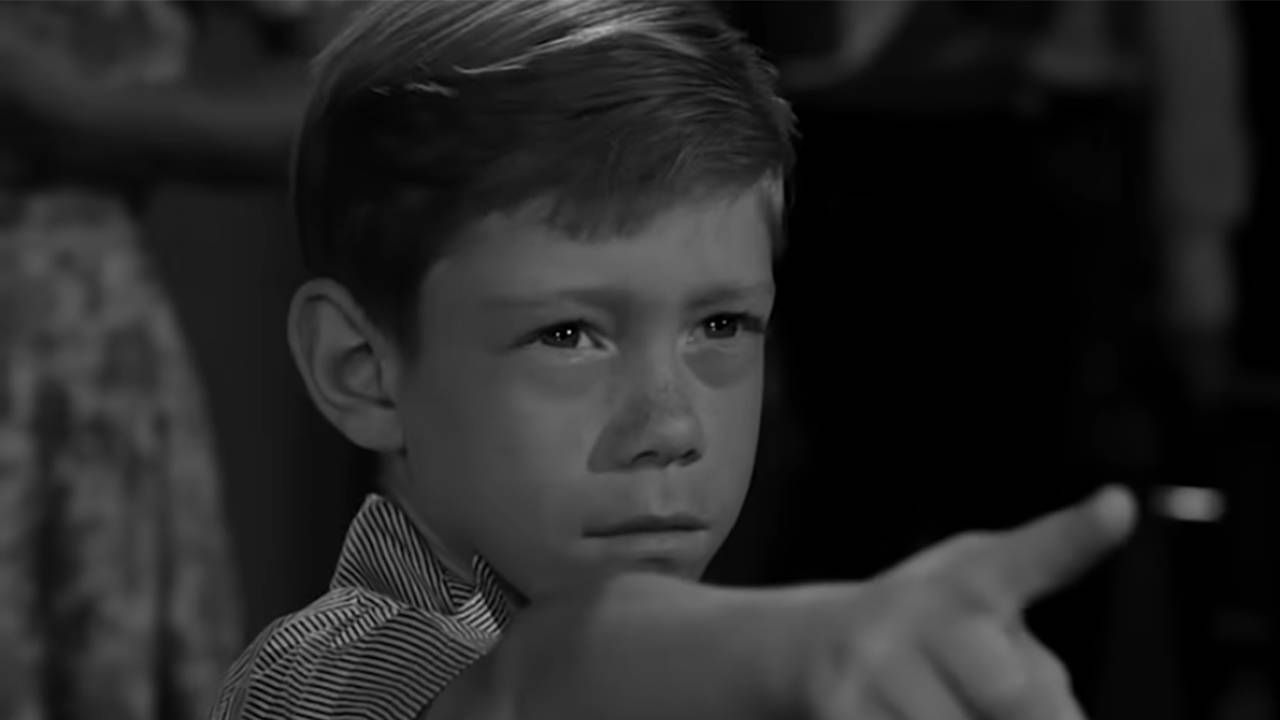Sixty Years On, We Still Can't Quit 'The Twilight Zone'
The iconic anthology series may really be 'as timeless as infinity'
You unlock this door with the key of imagination. Beyond it is another dimension. A dimension of sound <smashing glass>, a dimension of sight. A dimension of mind. You're moving into a land of both shadow and substance, of things and ideas. You've just crossed over into … The Twilight Zone. – Rod Serling, Preamble to Season 5 Episodes

Sixty years ago this month, one of the most enduring products of television's "golden age" began its final season in first-run. When creator Rod Serling wrote his already iconic prologue, he never dreamed, even in his fertile imagination, that his "Twilight Zone" would become, in his own words, "as timeless as infinity."
"I think that 'The Twilight Zone' is the best anthology television series ever made."
And yet, more than a half-century later, you'd be hard-pressed to find anyone who's advanced past their teenage years who hasn't seen or at least heard of "The Twilight Zone." We've all had "Twilight Zone moments" and the haunting DOO-doo-DOO-doo theme (introduced in Season 2) will, it seems, forever be synonymous with the weird and unworldly.
But creator Rod Serling's scripts went way beyond weird, which many believe is the key to the show's durability.
"I think that 'The Twilight Zone' is the best anthology television series ever made," says Bill Mumy, who, as a nine-year-old, starred with Jack Klugman in the premiere episode of that final season, "In Praise of Pip" (credited as Billy Mumy).
Now 69, Mumy, of course, went on to become "Will Robinson" in another iconic series from the '60s, "Lost in Space." But "TZ" — and the three episodes he appeared in — have a singular place in his memory. Ask Mumy for his favorite episode and he'll have trouble narrowing it down to one. But "To Serve Man" stands out for him, a perennial favorite in which hypercephalic aliens of NBA stature woo Earthlings into tourist flights to their home planet; flights from which no one seems to return.
Episodes Stand the Test of Time
"Rod Serling's scripts, they've certainly stood the test of time," he says. "They hold up beautifully as not only little morality plays, but reflections on the society at the time that still resonate powerfully today in many themes."
Among the most stark and timely examples of this is an episode from the very first season, titled "The Monsters Are Due on Maple Street." In this case the antagonists are aliens, who use simple devices such as selective power failures to trigger fear and violence in a suburban neighborhood. Serling's spoken epilog couldn't be more relevant today:

"The tools of conquest do not necessarily come with bombs and explosions and fallout. There are weapons that are simply thoughts, attitudes, prejudices – to be found only in the minds of men," Serling intones over the show's signature backdrop of winking stars. "For the record, prejudices can kill, and suspicion can destroy, and a thoughtless, frightened search for a scapegoat has a fallout all its own — for the children, and the children yet unborn. And the pity of it is that these things cannot be confined … to the Twilight Zone."
If some of Serling's teleplays came off as "preachy," he clearly didn't care. As his daughter, Anne Serling, 68, recalls in her 2013 memoir, her father once told an audience in Washington, D.C. that, "The writer's role is to menace the public's conscience."
Walking Distance
But ask a boomer with a nostalgia bent and they're likely to tell you their favorite episode is one from the very first season.
"'Walking Distance,' undoubtedly," says author Tony Albarella, without hesitation. Albarella, 54, isn't quite old enough to have seen the show in first-run. Nonetheless he has published more than 100 of Serling's scripts in a series of books. He also serves as vice president of the Rod Serling Memorial Foundation, based in Serling's boyhood town of Binghamton, New York. (Next year, the foundation will unveil a statue of Serling in Binghamton.)
In "Walking Distance," Gig Young portrays a harried ad man who enters a time warp where he's able to see himself as a boy in his hometown. Albarella says nostalgia was a Serling hallmark.
"A lot of his work featured nostalgia and characters that were seeking their past and had a longing for the past, like he did," notes the author. "And a lot of his most personal work comes out in that kind of writing … some of the most evocative writing he ever did."
"A lot of his work featured nostalgia and characters that were seeking their past and had a longing for the past, like he did."
Albarella believes the nostalgic element of Serling's work is one reason for its enduring appeal among older viewers. "I've had children of my own and now they're adults," says Albarella, revealing a very personal connection to the story in "Walking Distance." "And to be able to go back and either change regrets or just interact again one last time with these people of your past … even if they're in your life, they're not around the same way. And it's especially poignant when they're gone."
In the six decades since "The Twilight Zone" winked out from the CBS Friday night schedule, several "reboots" have been attempted — most short-lived, none with the same resonance as the original, which, Albarella sums up as "lightning in a bottle."
Moral Outrage
"'The Twilight Zone' launched during the Eisenhower era, which was a time of great conformity, consumerism, isolationism in a lot of ways," he recalls. "It went right through the rise and fall of Kennedy's Camelot. In that short five-year period, it spans and reflects the cultural upheaval of that period in America."
Anne Serling writes that "among my father's moral and philosophical outrages were the Holocaust and the American civil rights struggle." But he often had to disguise his antagonists as space aliens or even the Devil himself, to avoid being stifled by networks and sponsors.

"History is just so cyclical, and our problems and our strengths are so much a part of who we are as mankind," notes Albarella. "It really does not change, it just finds voice and expression in different ways at different points."
"It's one thing to be able to make people laugh," says Mumy. "Hey, Mel Brooks at 96 – I mean, that's a wonderful gift. But if you have the power to make people think about doing the right thing and think about their perspective within the planet or within the galaxy, it's a bigger thing. And that's what Rod Serling was able to bring to us." (Check here for various streaming services currently offering "The Twilight Zone.")
Today Mumy has added accomplished musician and memoirist to his acting credentials. He lives in the same house in Laurel Canyon that he's called home for 50 years. But he's never entirely shed his most famous (and creepy) Twilight Zone role, that of Anthony Fremont, a clairvoyant boy with mystical and frightening powers, which he used to enforce his own childlike brand of morality, sending adult malcontents to a presumably purgatory limbo in "the Cornfield."
"I've never let — let's say Anthony has never let me go," Mumy admits. "Yeah. I carry Anthony around with me. He'll pop up at the strangest times."
He can still do a convincing recreation of the menacing big-eyed stare that accompanied Anthony's own form of moral outrage. "There's times when I believe I can read your thoughts," he says. "If I don't like you, I'll send you to the Cornfield."

Read More

